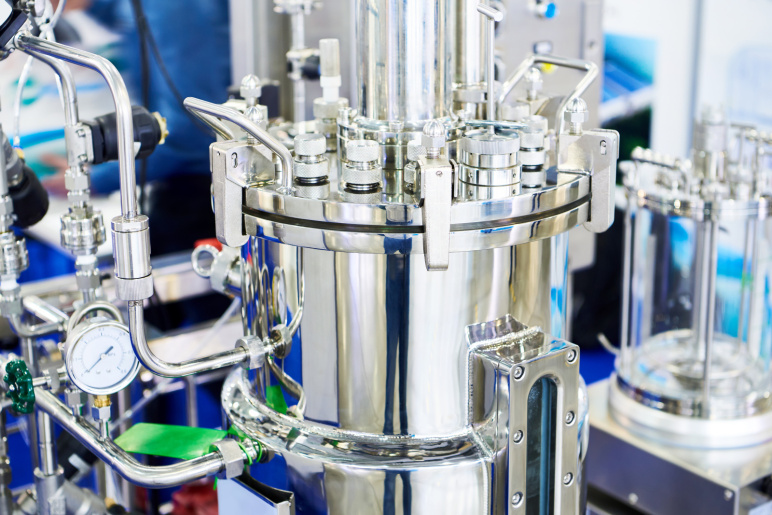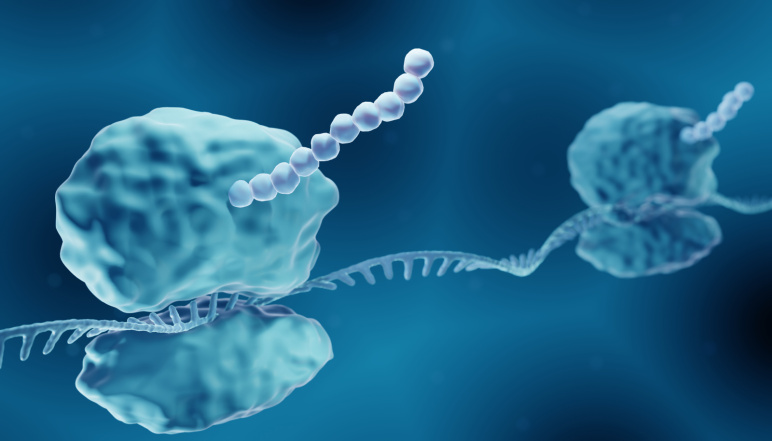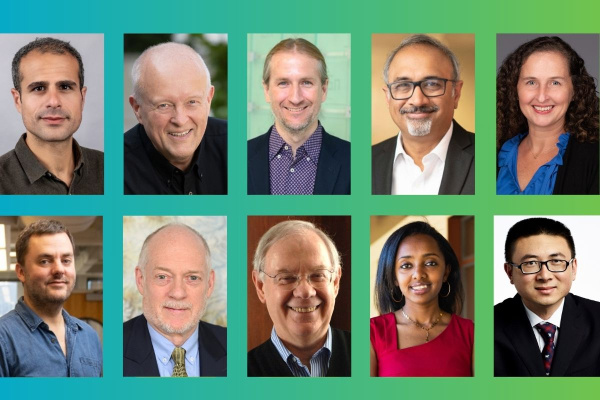Our Research Toward sustainable food protein manufacturing

Optimizing food protein manufacturing in a bioreactor system will reduce costs and make precision cellular agriculture sustainable.

The efficiency of translating mRNA into a protein is regulated by the tRNA pool and patterns of codon usage. Photo credit: iStock.
Principal Investigator
Peter Dedon
- Underwood Prescott Professor and the Singapore Professor
- Department of Biological Engineering
Building on MD-PhD training in cancer pharmacology, Pete Dedon’s research program applies chemical approaches to understanding nucleic acid biology. Dedon is currently the Underwood Prescott Professor and the Singapore Professor in the MIT Department of Biological Engineering and the lead principal investigator in the Singapore-MIT Alliance for Research and Technology Antimicrobial Drug Resistance Program (SMART). Over the last three decades, his research group has developed a variety of analytical and informatic platforms for discovery and quantitative analysis of epigenetic and epitranscriptomic regulatory mechanisms in infectious diseases, cancer, and most recently neurodegenerative diseases. He now applies these mechanisms to protein manufacturing.
Credit for headshot photo: Roger Pellisier
Challenge:
How can we make food protein manufacturing cost-effective?
Research Strategy
- Building on the discovery of how certain DNA "words" (called codons) are used more than others when cells make proteins, a machine learning model will be created to predict which codons are most often used by a specific type of yeast commonly used in protein manufacturing called Komagataella phaffii
- Starting with a growth factor called FGF2 for cultured meat production, the codon-predictive machine learning model will be used to create a prioritized series of 100 FGF2 gene constructs bearing codon usage patterns optimized for maximal translation
- The optimized FGF2 gene constructs will be inserted into Komagataella phaffii, and the yield of FGF2 produced will be quantified. This dataset will then be used to refine the machine learning model to further improve its predictive power, with new optimized FGF2 gene constructs tested for improved yield
Project description
Manufacturing food proteins and cultivated meats by precision cellular agriculture holds promise as an environmentally sustainable replacement for livestock farming by reducing greenhouse gas production and land use, as well as providing essential food proteins for farm-inaccessible regions. The main challenge to this goal, however, is the high cost of manufacturing food proteins.
Peter Dedon, the Underwood-Prescott Professor in the Department of Biological Engineering, aims to reduce manufacturing costs by increasing protein yields in bioreactors using a new alternative genetic code to enhance protein translation. In the standard genetic code, 61 three-nucleotide sequences—called codons—specify 20 amino acids during protein synthesis. Dedon’s team discovered that the “spare” or synonymous codons for each amino acid are concentrated in genes that respond to stresses, such as producing large amounts of a protein, which requires a large amount of energy. Using a machine learning model, Dedon will create a predictive biogeographical map of codon usage patterns across the 5000 genes in a commonly used protein manufacturing organism, Komagataella phaffii. The map will be piloted to reengineer the gene for the FGF2 growth factor for cultured meat production, with the long-term goal of optimizing food protein yields and reducing protein manufacturing costs.
News
Additional Details
Impact Areas
- Food
- Climate & Sustainability
Research Themes
- Sustainability & Adaptation
- Transforming Food Systems
- Modeling & Data Analytics
Year Funded
- 2025
Grant Type
- Seed Grant
Status
- Ongoing

